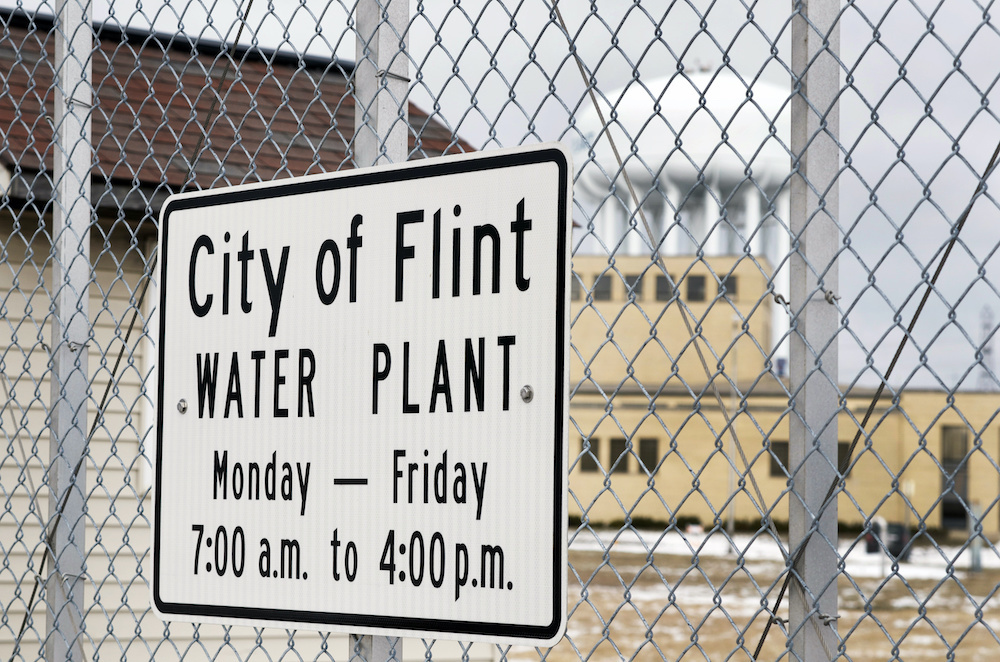FLINT, Mich. (Legal Newsline) - Plaintiff lawyers added a new layer of defendants to litigation over the Flint, Mich., water fiasco, suing the investment banks that underwrote a $300 million bond offering that facilitated the city’s shift away from its longtime supplier of drinking water, Detroit.
The lawsuit on behalf of Flint residents accuses JPMorgan Chase, Wells Fargo and Stifel Nicolaus of engaging in “conscience-shocking behavior” by underwriting Flint’s bonds when the banks supposedly knew the city would rely on its own decrepit water system until a new one was complete.
The lawsuit joins a maelstrom of litigation over the Flint water crisis, which occurred after the city switched its water supply to the Flint River in 2014 without investing in treatment equipment to protect its aging lead pipes from corrosion. Children's blood-lead levels spiked until government officials realized the mistake in 2015, although they never approached levels that were typical for children in the 1960s and 1970s.
Some of the nation’s most prominent law firms flocked to the city to sue on behalf of residents. Michigan in August agreed to pay $600 million to settle its share of the liability, with plaintiff lawyers getting an as-yet-unknown share of the money.
The latest suit was filed in U.S. District Court in Flint by Levy Konigsberg, which was in the initial group of law firms seeking to sue over the water crisis. The lawsuit represents an aggressive attempt to drag in peripheral defendants to a case that until now hinged upon decisions by government officials and outside engineers.
Most of the law firms involved in Flint litigation are also heavily involved in asbestos litigation, in which the roster of defendants long ago expanded beyond companies that manufactured asbestos products to any company that can plausibly be accused of having handled the stuff.
Suing investment banks for leading a bond offering may be a stretch. Lenders have been held liable for environmental claims but usually only after they take full title to a toxic chemical site or get involved in the management of a polluter. The federal Comprehensive Environmental Response, Compensation and Liability Act (CERCLA), or Superfund law, sharply limits lender liability although some courts have found lenders can be liable if they influence how a polluter handles toxic waste.
The lawsuit against the underwriters says they underwrote a $300 million bond offering in 2014 for participants in the Karegnondi Water Authority, which was intended to replace the Detroit water system for Flint and several other cities. Flint was in dire financial shape at the time, however, and the lawyers say city officials used the pretext of remediating an old lime sludge lagoon to join the bond offering.
The remediation project would cost no more than $8 million, the lawyers claim, but the banks knew the real goal was to raise $85 million for Flint’s share of the KWA. “J.P. Morgan Chase, Wells Fargo, and Stifel knew about the farce,” and employed water experts who also knew Flint would have to use the Flint River as an interim water source until the KWA was completed.
“They agreed to and facilitated a plan for Flint to leave” the Detroit water system knowing “a necessary element of the plan was the use of raw, untreated Flint River water as an interim drinking water source, which would expose Flint’s residents and water users to lead-poisoning and legionella bacteria,” the lawyers claim.
The lawsuit names some 2,000 children who allegedly were injured by the lead-contaminated water.
